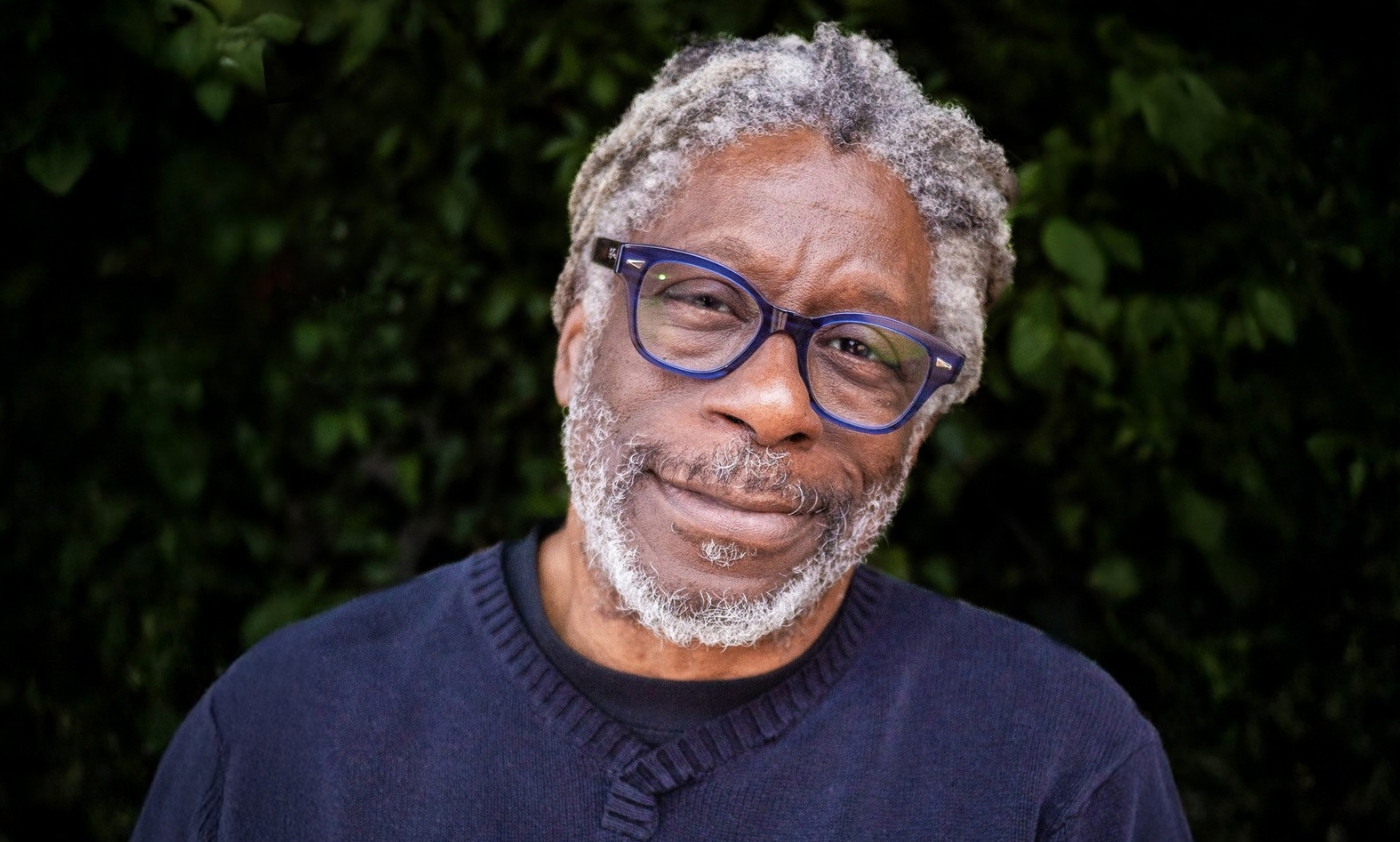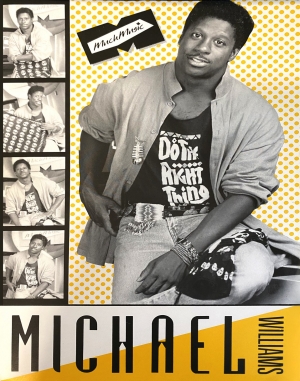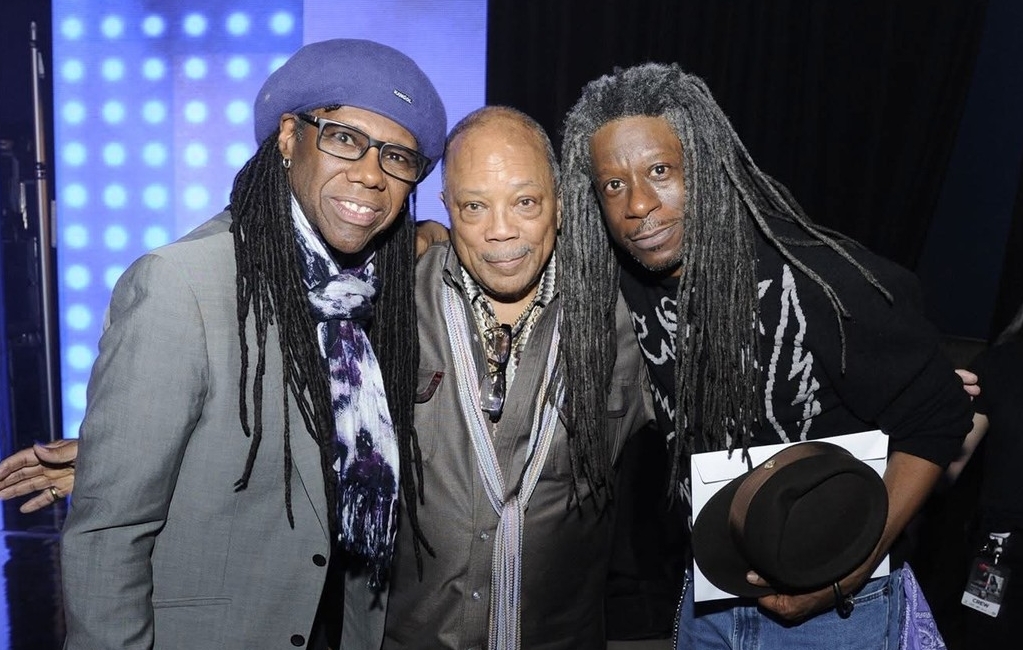Williams says he was at first not accepted into the program because he was told he was “only” a singer with Up With People. Yet his partner at the time, Mems (Sarah Mary Ellen) Maloney, BA 76, convinced William Gilsdorf, a professor at what’s now the Department of Communication Studies, to allow Williams to reapply because he had other communications skills. Then Williams also had to convince Father John O’Brien, BA 45, the founder of the department, to let him into the program.
“At Concordia, I studied the music, the culture, the radio in English and French, made friends, and it was just absolutely great,” he recounts. Williams and Stanley Darville, known as Jason, Stan and Co., were hugely popular DJs at the Loyola Campus Centre. He also DJed on Radio Loyola. “Along with Mike Delaney, Irene Boucher, Mems Maloney, Don Weekes and Joyce Pillarella [BA 06], I helped rebuild Radio Loyola.”
CHOM, Much and more
By the late 1970s, Williams became involved in various music projects in town, including at the Jazz Festival and Club 1234 nightclub, and across the country.
In 1979, with his Radio Loyola experience in hand, Williams met with Rob Braide, CHOM’s program director. “He says to me, ‘We have a slot midnight to 6. Would you like to try it?’” Williams relates. “I said, ‘Absolutely.’ This was my dream.” He also created and hosted Club 980 Soul in the City on CKGM, where he introduced listeners to music tied to Black culture. “And that became quite famous, which is what the documentary The Roots of Hip-Hop in Québec is about,” he says.
In 1984, a friend from Concordia, Zoe Stotland, BA 77, introduced Williams to Catherine McCartney. She was the agent of actor Al Waxman and media mogul Moses Znaimer — and soon to become Williams’s agent and manager. “Catherine said to me, ‘This guy named Moses Znaimer started this thing in Toronto called MuchMusic, and I think you should try out.’”
He sent in a demo tape and landed an interview. “I walked in and had only a few things prepared,” Williams admits. Nonetheless, he got the job. “The microphone I used at CHOM was replaced by the TV camera.”
On his first day at Much, Williams interviewed the pioneering hip hop group Run DMC as well as Lou Reed, leader of the influential 1960s rock band The Velvet Underground — a diverse pairing that reflects his own broad musical preferences. He credits Much with being more open to airing hip hop videos than its American counterpart, MTV.
“If I could have that breadth of music from Run DMC to Lou Reed and beyond, then I was in the right place with the right people,” Williams says.
“I got to represent Montreal, French Canadian music and culture, as well as Black culture. MuchMusic was a place where we wrote the book every day,” he says. “I wanted to make sure that Miles Davis was just as popular as Metallica, and that both their audiences knew the two. As long as it was music, we could communicate and have a great time.”


 “At Concordia, I studied the music, the culture, the radio in English and French, made friends, and it was just absolutely great,” says Michael Williams
“At Concordia, I studied the music, the culture, the radio in English and French, made friends, and it was just absolutely great,” says Michael Williams
 Williams’s MuchMusic promo poster from the 1980s
Williams’s MuchMusic promo poster from the 1980s
 Williams (right) pictured with musician and songwriter Nile Rodgers and the late Quincy Jones, producer and composer, at Canadian Music Week in 2014.
Williams (right) pictured with musician and songwriter Nile Rodgers and the late Quincy Jones, producer and composer, at Canadian Music Week in 2014.